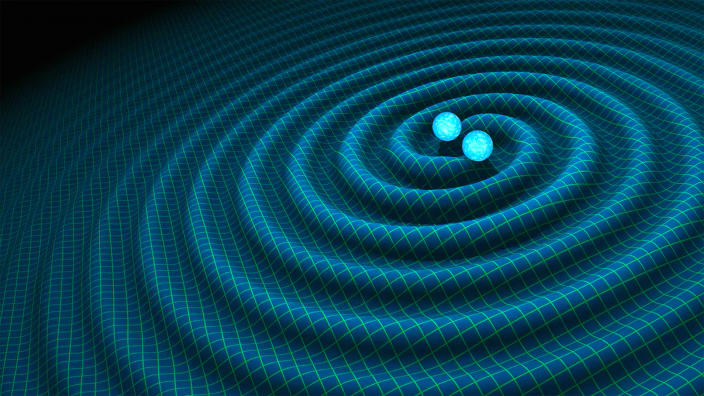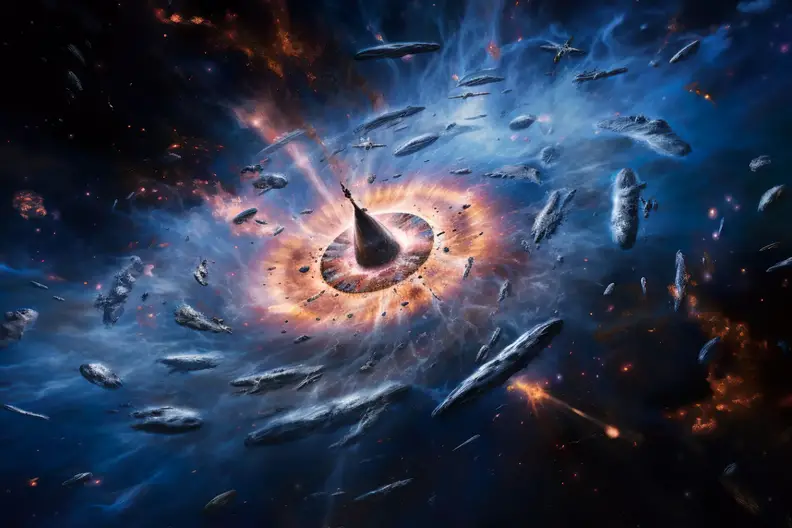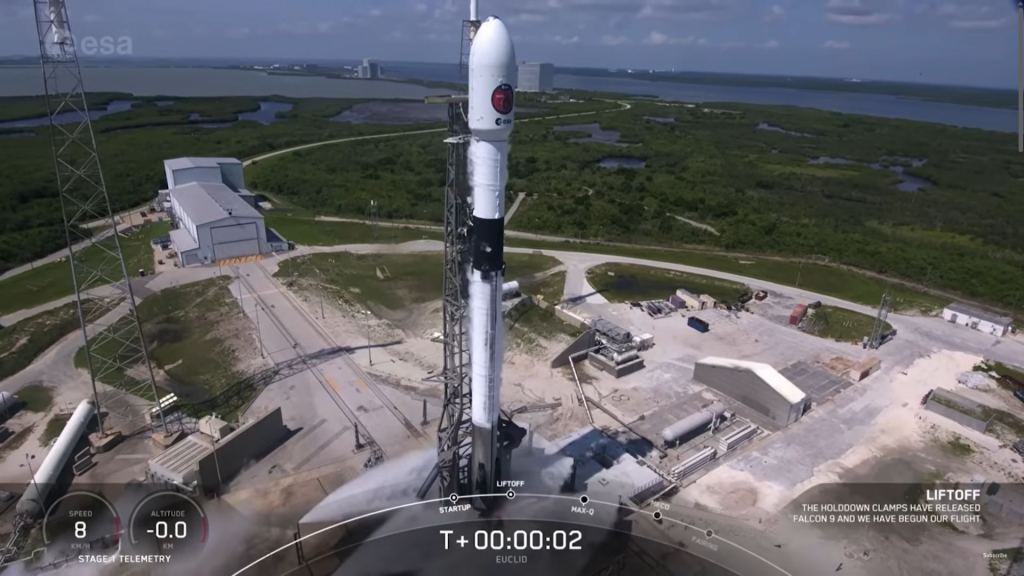Gravitational waves could help us find out how fast the expansion of the universe is accelerating
an artist’s illustration of gravitational waves, showing spiral ripples on a gridded surface emerging from two merging spheres Gravitational waves emitted when distant black holes collide and merge, ringing the very fabric of space-time like bells, could be used to help measure how fast the universe is expanding, according to a new study. Since the … Read more




